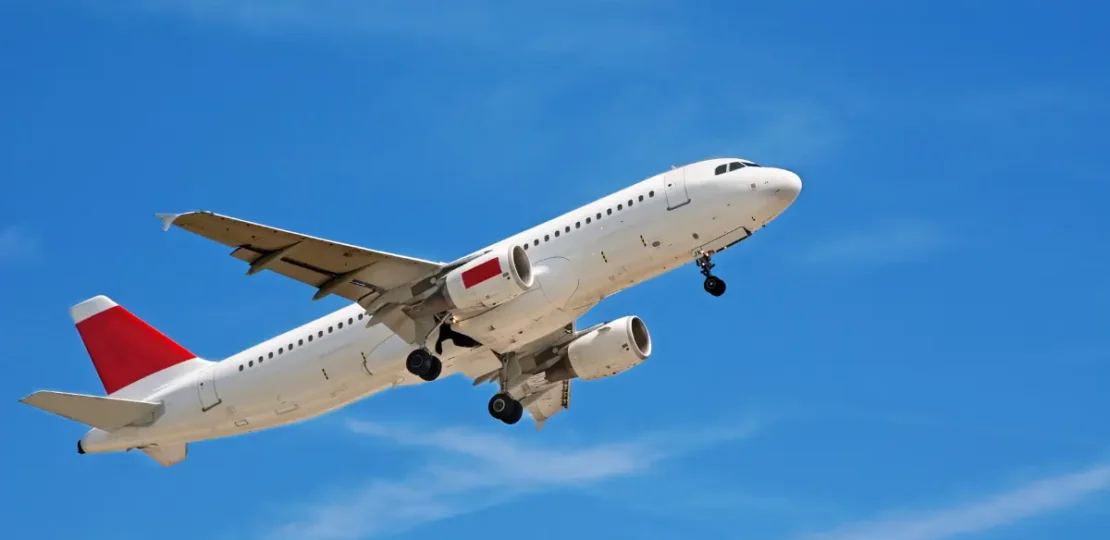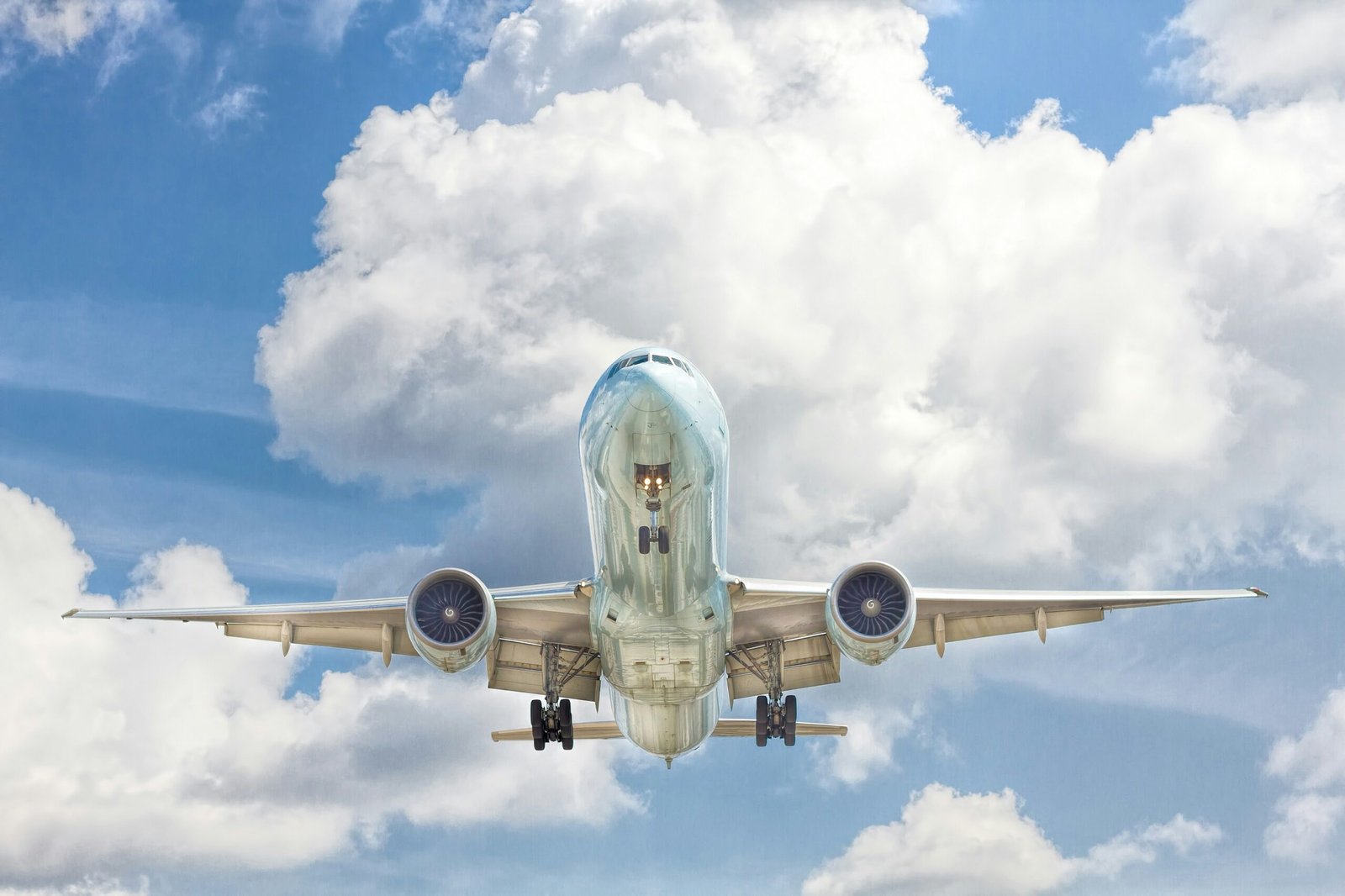China Airlines Flight Delayed or Cancelled? Get Compensation Up to €600!
May 29, 2024 | by flyhelp.info

Introduction to Flight Compensation

Understanding your rights as a passenger is crucial, especially when faced with the inconvenience of a delayed or cancelled flight. The European Union has established a protective measure for air travelers through Regulation (EC) No 261/2004. This regulation provides a framework for compensation, ensuring passengers receive fair treatment when their travel plans are disrupted.
Regulation EC 261/2004 entitles passengers to monetary compensation for various flight disruptions, including delays, cancellations, and denied boarding. The compensation amount can range up to €600, depending on the flight distance and the duration of the delay. It is worth noting that this regulation covers all flights departing from an EU airport, regardless of the airline, and flights arriving in the EU operated by EU-based airlines.
For passengers flying with China Airlines, this regulation is particularly pertinent if their journey involves departing from or arriving in an EU member state. This means that even if China Airlines is not an EU-based carrier, passengers can still claim compensation under certain conditions specified by EC 261/2004. This legal framework plays a significant role in safeguarding passengers’ rights and ensuring they are duly compensated for the inconvenience caused by unforeseen flight disruptions.
In essence, being aware of Regulation EC 261/2004 empowers passengers to take appropriate action when their travel plans are affected by delays or cancellations. It provides a clear pathway for seeking compensation and reinforces the importance of passenger rights in the aviation industry. Understanding these regulations can help travelers navigate the often complex process of claiming compensation, turning a potentially frustrating experience into one where their rights are recognized and upheld.
Understanding EC 261/2004 Regulation
The EC 261/2004 regulation is a crucial piece of European Union legislation designed to protect passengers’ rights in the event of flight disruptions. This regulation applies to flights departing from an EU airport or arriving at an EU airport on an EU-based airline, which includes China Airlines for flights commencing from Europe. It sets out the circumstances under which passengers are entitled to compensation, aiming to ensure fair treatment and financial redress in cases of inconvenience.
Under EC 261/2004, passengers are eligible for compensation if their flight is delayed, cancelled, or they are denied boarding. The eligibility criteria for compensation include the duration of the delay and the notification period provided by the airline. For a flight delay, passengers can claim compensation if the delay exceeds three hours upon arrival at the final destination. In the case of cancellations, compensation is due unless the airline informs passengers at least 14 days before the scheduled departure.
Denied boarding, often due to overbooking, also entitles passengers to compensation under this regulation. The compensation amount varies based on the flight distance and the length of the delay. For instance, passengers may receive up to €600 for long-haul flights delayed by more than four hours. The compensation amounts are as follows:
- €250 for flights up to 1,500 kilometers delayed by more than three hours.
- €400 for flights between 1,500 and 3,500 kilometers delayed by more than three hours.
- €600 for flights over 3,500 kilometers delayed by more than four hours.
It’s important to note that exceptional circumstances such as extreme weather, political instability, or security risks may exempt airlines from compensation obligations. However, technical issues or operational mishaps typically do not qualify as exceptional, thus maintaining passengers’ rights to compensation.
In practice, if your China Airlines flight from an EU airport is cancelled with less than 14 days’ notice or arrives at its destination more than three hours late, you are likely entitled to compensation under EC 261/2004. This regulation ensures that passengers are not left without recourse in the event of flight disruptions, providing a significant safeguard for their travel plans.
Eligibility Criteria for Compensation
Under the European Union regulation EC 261/2004, passengers on China Airlines flights that are delayed or cancelled may be entitled to financial compensation. This regulation ensures that air travelers receive fair treatment and recompense for significant inconveniences. However, eligibility for compensation hinges on several specific criteria.
One of the primary factors is the flight distance. For flights up to 1,500 kilometers, passengers could be eligible for compensation of €250. For flights between 1,500 and 3,500 kilometers, the compensation amount increases to €400. For flights exceeding 3,500 kilometers, the compensation can reach up to €600. It is essential to note that these distances are calculated based on the great circle distance between the departure and arrival airports.
The length of the delay also plays a crucial role in determining eligibility. Compensation is typically considered if the delay exceeds three hours upon arrival at the final destination. For cancellations, passengers may be entitled to compensation if they were informed less than 14 days before the scheduled departure date. Furthermore, if the airline offers an alternative flight that meets specified time criteria, the compensation amount may be reduced by 50%.
Another critical aspect is the airline’s responsibility. Compensation is due only if the delay or cancellation is within the airline’s control. Situations deemed “extraordinary circumstances,” such as severe weather conditions, political instability, or air traffic control strikes, may exempt the airline from liability. However, technical issues or operational problems generally do not fall under these extraordinary circumstances and may warrant compensation.
It is important for passengers to be aware of these eligibility criteria when seeking compensation from China Airlines. Understanding the nuances of EC 261/2004 can significantly improve the chances of a successful claim, ensuring that passengers are adequately compensated for disruptions to their travel plans.
How to File a Compensation Claim
Filing a compensation claim with China Airlines due to a flight delay or cancellation can be a straightforward process if you follow the correct steps. First and foremost, it is crucial to gather all necessary documentation. This includes your boarding passes, flight details (such as flight number, departure and arrival times), and any communications from the airline regarding the delay or cancellation. Keeping these records organized will facilitate a smoother claims process.
Once you have all the required documents, the next step is to complete the compensation claim form. China Airlines typically provides this form on their official website. Ensure that you accurately fill out all sections of the form, including personal details, flight information, and the nature of the disruption. Be as detailed as possible when describing the incident to provide a clear picture of the circumstances surrounding the delay or cancellation.
After submitting the claim form, you can expect a review process to commence. China Airlines will evaluate your claim based on the provided evidence and cross-reference it with their internal flight records. This process may take several weeks, so patience is essential. During this period, the airline might contact you for additional information or clarification. Promptly responding to such requests can expedite the review process.
To increase the likelihood of a successful claim, here are a few practical tips. Firstly, always keep a copy of all submitted documents and correspondence for your records. Secondly, familiarize yourself with your passenger rights under EU Regulation 261/2004, as it outlines specific entitlements in cases of flight disruptions. Lastly, if your claim is initially denied, do not hesitate to appeal the decision, providing any additional evidence that may support your case.
By meticulously following these steps and being well-prepared, you can enhance your chances of receiving compensation of up to €600 from China Airlines for any delays or cancellations you experience.
Common Reasons for Flight Delays and Cancellations
Flight delays and cancellations are unfortunate realities that passengers may encounter. Various factors contribute to these disruptions, with some being more common than others. One prevalent cause is technical issues, which can range from routine maintenance to unexpected mechanical failures. Airlines are obligated to ensure aircraft are in optimal condition, and any technical glitch can lead to delays while the issue is addressed. When these problems occur, passengers may be entitled to compensation under EC 261/2004, as long as the airline is deemed responsible for the delay.
Weather conditions also play a significant role in flight disruptions. Severe weather events such as thunderstorms, heavy snowfall, and fog can make it unsafe for flights to operate. In such cases, safety is the top priority, and delays or cancellations are often unavoidable. However, these scenarios are typically classified as extraordinary circumstances beyond the airline’s control, which means they do not qualify for compensation under EC 261/2004.
Another common reason for flight delays and cancellations is air traffic control (ATC) strikes. These strikes can severely impact flight schedules, leading to significant delays or cancellations. While frustrating for passengers, ATC strikes are also considered extraordinary circumstances. As such, airlines are usually not obligated to provide compensation in these instances, despite the inconvenience caused to travelers.
Other factors that may lead to flight disruptions include operational issues, such as crew shortages or logistical challenges. Depending on the nature of these issues, passengers may be eligible for compensation if the airline is found liable. On the other hand, political instability or acts of terrorism are also classified as extraordinary circumstances, exempting airlines from compensation requirements.
Understanding the common reasons for flight delays and cancellations can help passengers navigate their rights under EC 261/2004. While technical issues and operational challenges may entitle travelers to compensation, extraordinary circumstances like severe weather and ATC strikes do not. Being informed about these distinctions ensures that passengers can effectively seek compensation when eligible.
If China Airlines rejects your compensation claim, it is essential not to lose hope and to take a systematic approach to escalate the issue. The first step should be to carefully review the rejection notice provided by the airline. Ensure that you understand the reasons behind the rejection, as this information will be crucial for your next steps.
One effective option is to contact national enforcement bodies (NEBs). NEBs are responsible for enforcing air passenger rights within their respective countries. Filing a complaint with an NEB can prompt a thorough investigation into the airline’s handling of your claim. Be sure to provide all relevant documentation, including your flight details, communication with the airline, and any other supporting evidence.
Another viable route is to seek alternative dispute resolution (ADR). ADR services, such as mediation and arbitration, offer a less formal and often quicker way to resolve disputes without going to court. Many countries have ADR schemes specifically designed for air travel disputes. Engaging in ADR can sometimes lead to a satisfactory resolution without the need for legal action.
If these steps do not yield results, you might consider using legal services. Consulting with a lawyer who specializes in aviation law can provide you with professional advice tailored to your specific situation. Legal services can be particularly useful if your claim involves complex issues or if you are seeking a significant amount of compensation. While this option may involve additional costs, it can often be an effective way to assert your rights.
Throughout this process, persistence is key. Keep thorough records of all communications, including emails, letters, and phone calls. Detailed documentation can strengthen your case and provide essential evidence if you need to escalate the matter further. By staying organized and resolute, you increase your chances of obtaining the compensation you are entitled to.
Additional Passenger Rights and Services
When faced with a flight disruption such as a delay or cancellation, passengers are entitled to more than just monetary compensation. Under the European Union regulation EC 261/2004, travelers have several additional rights that ensure they are well taken care of during these inconveniences.
One of the foremost rights is the right to care, which obligates airlines to provide essential services to passengers experiencing significant delays or cancellations. This includes offering meals and refreshments proportionate to the waiting time, along with access to communication facilities such as telephone calls or emails. Should the disruption necessitate an overnight stay, airlines are also required to provide accommodation and transportation between the airport and the accommodation.
Beyond immediate care, passengers have the right to choose between rerouting and refunds. Rerouting entails being transported to the final destination at the earliest opportunity or at a later date convenient to the passenger, subject to seat availability. On the other hand, passengers may opt for a full refund of the ticket price if the disruption makes their travel plans unfeasible. This refund must be provided within seven days of the flight cancellation or the passenger’s decision to forgo the journey.
These rights are designed to complement the financial compensation outlined under EC 261/2004, enhancing passenger protection and comfort during unforeseen circumstances. By ensuring that passengers receive both immediate care and viable alternatives to reach their destinations, these provisions aim to mitigate the inconvenience and stress associated with flight disruptions.
In summary, understanding and utilizing these additional passenger rights can significantly improve the travel experience when faced with flight delays or cancellations. By being aware of the right to care and the options for rerouting or refunds, passengers can navigate these disruptions more effectively and ensure they receive the full extent of the assistance they are entitled to under the law.
Conclusion and Final Tips
Understanding your rights as a passenger is crucial when faced with a delayed or cancelled China Airlines flight. As discussed, European Union regulations entitle passengers to compensation of up to €600 for significant disruptions, provided certain conditions are met. Knowing these regulations can empower you to take necessary actions and ensure that your inconveniences are adequately addressed.
Firstly, it is essential to remain calm when confronted with a flight delay or cancellation. Staying composed will help you to think clearly and make informed decisions. Ensure you retain all travel documents, including boarding passes, receipts, and any communication from the airline. These documents are vital when claiming compensation, as they serve as proof of your travel plans and the disruption experienced.
Being proactive is another key tip. Immediately seek assistance from China Airlines staff to understand your options. They can provide information on rebooking, accommodation, and meal vouchers if necessary. Additionally, inquire about the reason for the delay or cancellation, as this information is crucial for determining your eligibility for compensation.
Moreover, consider using compensation claim services. These services can simplify the process, often working on a no-win, no-fee basis. They can handle the intricacies of the claim process, ensuring that you receive the compensation you are entitled to without the added stress.
Lastly, familiarize yourself with the airline’s policies and the relevant EU regulations before you travel. This knowledge will prepare you for any eventuality and ensure you are well-equipped to handle disruptions efficiently. By staying informed and proactive, you can turn an inconvenient situation into an opportunity to assert your rights and receive appropriate compensation.
RELATED POSTS
View all


